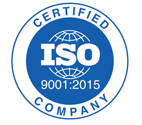
Regulatory Compliance and Quality professionals in the Life Sciences industry face constant challenges on a daily basis. Carrying the critical responsibility of providing safe and effective pharmaceutical products and devices to patients while at the same time dealing with regulation, monitoring, and oversight is certainly no easy task. On top of that, the executive team and Board of Directors are looking to you for contributions and improvements not only to your department, but to the company as a whole. Consequently, such professionals need to consider any and all opportunities as they manage their business. One such area to explore is partnering with a certified woman owned business. Before we get into the benefits offered, let’s review briefly the requirements for a woman owned business.
A certified woman owned business must be at least 51% owned and controlled by one or more woman. The woman’s Business Enterprise National Council (WBENC) is the nation’s largest third-party certifier of woman owned businesses. To obtain certification, a business must provide a detailed application and formal supporting documentation, as well as undergo a site visit. Such certification is renewed on annual basis. If accepted, a business is provided a written document from the certifying agency evidencing their certification.
Here are 4 key advantages offered by engaging a certified woman owned business:
1. Tax Breaks – Companies that use a certified woman owned business or other certified diverse supplier as a supplier are eligible for tax incentives from the federal government. In addition, certain states offer similar tax incentives, but it varies state by state. Reach out to your tax department for an understanding of the specific tax incentives applicable to your company.
2. Greater Profitability – A recent study conducted by the Hackett Group demonstrated that companies using WBENC certified suppliers experience greater profitability, including lower overall operating costs.
According to the Hackett Group, “the potential upside is significant” for companies focusing on supplier diversity. This, in part, can be attributable to the introduction of new ideas from a fresh, diverse perspective which creates a forum for healthy discussion, enhanced creativity, additional insights into diverse consumer markets, increased innovation, and ultimately more and better information to allow for informed decision-making. Also, bringing on-board a diverse supplier will likely drive further competition among a company’s existing vendors.
3. Demonstrated Commitment to Supplier Diversity – Companies typically want their supplier selection process to align with not only their own overall values, but the values of their customers. Many customers want to give their business to companies that exhibit a focus on supplier diversity which mirrors their own priorities.
Quite simply, you’re letting others know that what’s important to them is important to you. Further, in the spirit of social responsibility, your support of diverse companies not only can benefit your own company, but can also have a tremendous impact on overall society and the entire economic market.
4. Increased Satisfaction – At the end of day, you need to be working with companies that will best serve you, regardless of whether they are certified minority owned or not. According to a 2017 research study by the Hackett Group, diverse suppliers (which includes minority owned and woman owned enterprises) either meet or exceed performance expectations 99% of the time.
Diverse suppliers tend to be smaller than their competitors, which typically allows them to be more flexible, more nimble, and more responsive to their customers’ needs. Consequently, companies are taking advantage of the benefits described above without seeing a drop-off in performance levels... in fact, they’re experiencing better performance.
The growth in the overall number of woman owned businesses has been quite significant. According to the National Association of Woman Business Owners, more than 9.1 million firms, generating sales of $1.5 trillion in 2015, were owned by woman. Now, more than 30% of privately-owned companies are woman owned.
As these businesses continue to become more prevalent throughout the business world, more and more companies are looking to do business with these and other diverse firms. In your constant search for new ways to help your team and your company, looking to expand, or even create, your company’s diversity initiative through a partnership with a certified woman owned business is certainly something to be considered.




